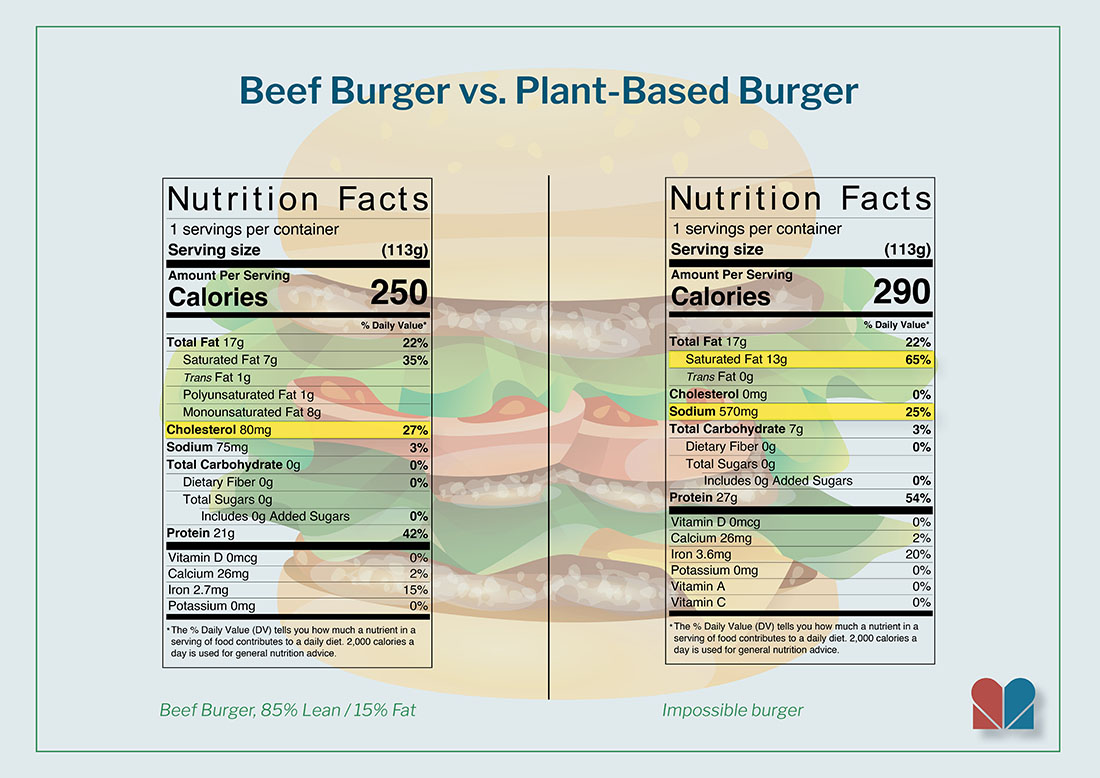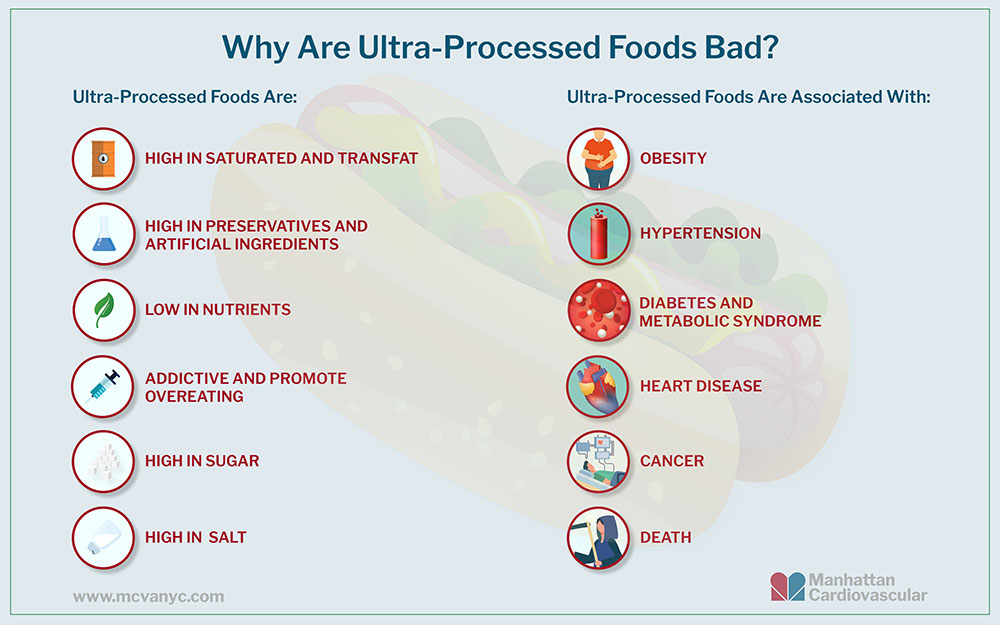Insights

Is Plant-Based "Meat" a Healthier Alternative?
May 25, 2021
If you’d like to reduce the amount of animal protein in your diet, the good news is that convenient alternatives now exist that get closer to the taste, smell, and cooking behavior of meat than most options of the past.
Plant-based versions of traditional meat items are suddenly everywhere, even on restaurant menus. What exactly are plant-based meats? How do they compare to the real thing? Most of all, are they good for you?
Many people want the health benefits of a more plant-based diet but don’t like the idea of giving up the taste and texture of meat. To meet the demand for a satisfying compromise, an array of plant-based products have emerged that mimic the qualities of their animal-protein counterparts—burgers that turn from pink to brown on the grill, sausages that are as chewy and spicy as the real thing, and chicken-free chicken nuggets that can stand up to any dipping sauce.
Why are these plant-based alternatives suddenly such a big deal?
Eating a lot of meat and other animal products has been shown to increase the risk of cardiovascular disease, obesity, type 2 diabetes, and certain cancers. The good news is that replacing some of the animal protein in your diet with plant-based protein sources can significantly reduce total cholesterol and lower your risk for many chronic diseases.
With people paying more attention to the health consequences of what they eat, a growing number are trying to cut back on their consumption of animal products. As a result, the popularity and availability of plant-based products that mimic the “meat experience” have expanded rapidly. The leading plant-based burgers, for example, now appear on the menus of multiple national restaurant chains.
What are plant-based “meats” made of?
The protein components typically come from soy, peas, beans, or wheat gluten. Most of these products contain a certain amount of oil—often coconut oil, because its high saturated fat content helps approximate the cooking behavior and mouth feel of meat. Other ingredients may include grains, rice, sugar, flavorings, colorings, and various additives. One of the plant-based burgers contains a vegetable form of hemoglobin (engineered from soy), which approximates the pinkish color and bleeding behavior of a beef patty.
Pros and cons of meat
If you’re a meat lover, you’d probably say the best things about meat are its taste and smell, but it has other advantages too. Meat is high in protein, and at least in this country, it’s widely available and less expensive than many other foods. Meat is soy-free and gluten-free, so if you need to avoid either of those ingredients, it’s a ready option.
But meat is also high in cholesterol and saturated fat, which can contribute to plaque buildup in the arteries and increase your risk of cardiovascular problems. In addition, meat often contains hormones and antibiotics. And the preservatives added to many meat products, such as nitrates and nitrites, can cause sensitivities and other health problems in some people.
Pros and cons of plant-based “meat”
The meat-mimicking plant-based products have about the same amount of protein as the animal-based versions, which is a definite benefit. But the most significant advantage is the absence of cholesterol in plant-based foods. That difference can be a big attraction for meat lovers watching their cholesterol intake. Plant-based meats also typically contain some fiber, though not a lot (then again, meat contains none).
On the other hand, the plant-based products aimed at meat eaters still contain a lot of saturated fat, and they tend to be higher in calories than meat. They’re also high in sodium, which can contribute to hypertension. And unlike foods you could make at home, these plant-based meats are ultra-processed.

Processing encompasses a wide range of alterations made to foods on their way to the consumer often involving the addition of salt, flavors, and preservatives.
Ultra-processed foods contain few whole ingredients and instead consist mostly of substances that have been extracted from food sources. The soy protein found in these plant-based meats, for example, isn’t soybeans but isolated protein molecules extracted from soybeans. Since they’re missing a lot of the natural components of their ingredients, processed foods have much less nutritional value. Even worse, studies have found that ultra-processed foods are associated with higher rates of obesity, cancer, and heart disease.

Our take
The heart-healthy move is definitely to add more plant-based foods to your diet and decrease the proportion of animal-based foods. Eating more plants and less meat can help reduce your LDL (“bad” cholesterol), increase your HDL (“good” cholesterol), and lower your blood pressure. But the plant-based products designed to mimic real meat, while they may look like a healthier alternative, have serious downsides. Because these products are ultra-processed, they’re short on nutritional benefits and may actually contribute to heart disease and other health conditions.
Looking for simple changes that can have a major impact on your health?
CALL TODAY
212-686-0066

